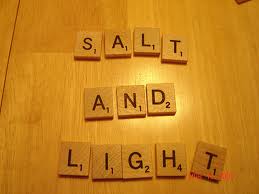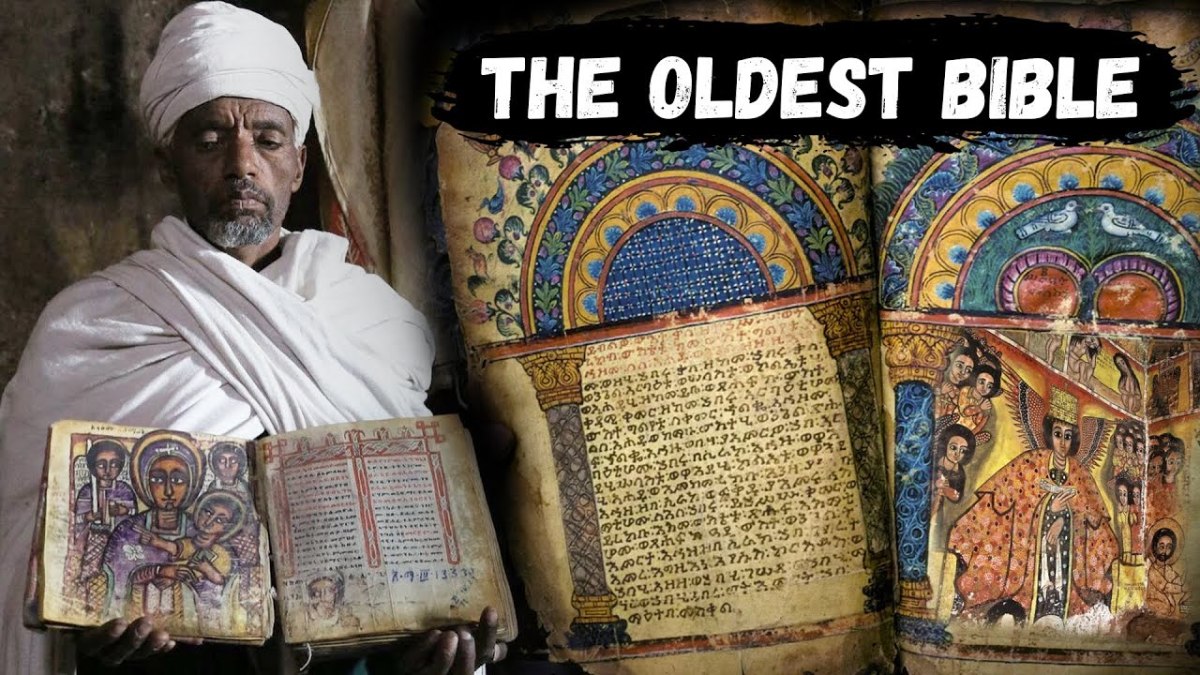Salt of the Earth & Light of the World: What is A Believer's Role?

An Greek History and Exegisis
MATTHEW 5:13-16
You are the salt for the earth. But if the salt becomes tasteless, in what way will it become salty again? For nothing about it is good any longer except having been thrown out to be trampled upon by people. You are the light of the world. A city is not able to be hidden lying on a mountain. Nor do they light a lamp and place it under the grain basket but upon the lamp stand and it lights all the ones in the house. Thus let your light shine before people, so that they may see your good works and glorify your father in heaven.
This salt and light scripture is in reference to the discipleship of believers. 5.13-16 has three main components, which are an expansion of the Beatitudes in 5.11-12 and the introduction to their application in 5.17-7.12 and most importantly, it provides the definition of the descriptions of believers and what is expected of them. For example, umeis este to alas tes ges “You are the light of the world” is redactional, rewritten. The second person follows the second person verbs and pronouns in 5.11-12. “Salt” alas is common to the LXX and New Testament forms, otherwise it is rare. The definite article of salt to “the” gives the disciples the role as theirs alone. This is a paradoxal phrase. The world is saved by those it persecutes.[1]
There is a formal connection between the passive usage and the Beatitudes by the continuing use of “you” introduced in 5.11-12.[2] In 5.13-16 Jesus changes from the blessings of the believer to the core of why to do those things, which is for the salvation of the world. While the believer will be blessed by following the Beatitudes, that is not the main purpose. And once the purpose of salvation of the world is established in 5.13-16, the application is outlined in 5.17-7.12, which is a comprehensive guide on social, cultural and legal issues.[3] It is the how-to guide of drawing others to God.
There is little reference in 5.13-17 of how to be salt and light. It simply states that the believer is salt and light; it is expected of us by God and the answers of why and how are given in the surrounding text. Therefore, the question becomes more definitive. We have to examine what both salt and light are to understand their functions before we can be them. What exactly does salt of the earth and light of the earth mean? How does it define who the believer is? More importantly, does the believer need to be completely salty and well-lit all the time or can she be a little bit sometimes? There is no mistaking Jesus’ intent. We are salt of the earth and light of the world all of the time. One cannot be partially salty and partially lit. These passages call for complete submission to the Will of God and what God has called the believer to be.
5.13. You are the salt for the earth. But if the salt becomes tasteless, in what way will it become salty again? For nothing about it is good any longer except having been thrown out to be trampled upon by people.
You are the salt for the earth. This simple statement is a metaphor with many different levels of meaning. In its basic understanding, it is that the believer should salt the earth. That in itself seems easy enough to do and is something that all believers would be eager to do. However, we need to look at the characteristics of salt and the ancient and modern understanding of its function to fully understand the depths of what Jesus wants us to be.
Salt is made from water and fire, the sun and sea. This has immediately significance in the metaphorical image of baptism in both water and fire. It also shows the resilience of this substance.
Some commentators explain that to flavor the earth is not exactly what is meant by the word salt and that it was meant more likely to preserve or save the earth.[4] However, flavor and lack of flavor are very significant to the understanding of the use of salt.
Flavor is not determined by the salt itself but by its use to enhance the flavor of what it put on. If we are the salt of the earth, then we enhance the life and gifts that God has given others on this earth. It did not take long for the ancients to discover that salt had a pleasant taste that drew out the flavor of the foods it was placed upon. Salt or the absence of salt can be noticed by the one using the item it was placed upon. It is noticed by the tongue and light by the eye. In each case, the user is gratified.[5] This use is a good example of believers utilizing their abilities and helping those who are nonbelievers to develop their relationships with God and discover their own abilities he has given them.
Before salt was used for flavor, it had been discovered and used for the preservation of food. It was a survival mechanism that allowed civilizations to develop, flourish and survive. Without it, one cannot eat what would normally become rotten. Alexandria states “For without salt neither bread nor fish is edible.”[6] In other words, it makes the inedible edible.
The negative side of the knowledge of preservation would be that salt could be used to spread across the land and destroy it. This would The Assyrians used this as a military practice. They would salt the earth if its enemies or its captured lands to prevent them from growing crops and becoming self-sufficient again. In fact, in Judges 9:45, Abimelech after stopping the revolt of Shechem, spread salt upon its land. There is question of whether this was done in an attempt to stop the growth of future crops or if it was a symbolic gesture, a curse on Shechem. Either way, the purpose of the salting was to destroy Shechem, or at least render it useless. Like anything, too much is detrimental. But this is not what Jesus is referring to. He wants us to be salt for the earth, which means if we do it God’s way, it will be neither too little nor too much.
Salt is necessary for the survival of the world and society. It is a required mineral of the body. A diet of vegetables and no salt or having too much salt shuts down the human organs. Too much salt in the river and it cannot flow. It is one of the basic four elements needed for survival. There is water, fire, iron and salt. The believer is a necessary element for the survival of God’s earth.
There are many useful qualities in salt, as mentioned above, preservation and seasoning. It is also an antiseptic used to cleanse and heal wounds. The proverbial use of salt is eating salt together, meaning enjoying the hospitality of old friends, to supply with salt, to salt the food, to assemble and to collect in military forces.[7]
In Ezra 4.14 it states that those who eat the salt of the palace cannot be witnesses against the king. To eat salt with someone is a sign of loyalty. We are to be loyal to the covenant we have made with God through Christ Jesus. Ezekiel 16.4 states that preserving life or driving away evil with salt and 2 Kings 2.19-22 writes of staying corruption of death. Leviticus 2.13, Numbers 18.19 and Chronicles 13.15 all show the covenant between God and his people through the use of salt. It is not only used to preserve life, but to give life. Jesus is saying that there is an earth that needs salt, God’s salt.
Fertilizing the earth with salt will provide nutrients and make things grow. Many commentators take salt in this passive form to be a preservative, but the context “of the earth” suggests a stimulating property such as a fertilizer.[8] Jesus came to earth to provide life and provide it abundantly. He is telling us that as sons of God and as brothers and sisters in Christ, we are the salt that he is providing the earth. This stimulating use is confirmed by the objective genitive use of tes ges, “of the earth” which should probably be translated “for the earth”. This would correspond with 5.14 below. However, the genitive expression “of the earth” is hard to understand because of the ambiguity of the relation between salt and earth.[9]
Finally, regarding the definition and use of salt, we must remember the value that was placed on salt during this time and that no one had the ability to have salt except the very rich people. The use of this substance is therefore an indication of the value Jesus places on God’s people.
For the Earth simply means for the people who inhabit the earth. However, while the Jews knew that there were other places beyond the Far East, the Far East was their main focus.
But if the salt becomes tasteless, in what way will it become salty again?
This passage is difficult to interpret. There are many different commentaries which describe the separation of salt or the addition of impure substances into salt. And likewise, there are just as many guesses as to why Jesus would ask, “in what way will it become salty (again)?” Rather than examine the technicalities of those options, I give the basic outline of the options, point out the ability and effects of having tasteless salt.
There are many explanations to why Jesus would ask if salt could become salty again. It could be that Jesus is referring to salt being mixed with other substances so that in its impurity, it is no longer effective. Another explanation is that the salt from the Dead Sea has other substances and when the salt is removed all that is left is what is useless. Regardless, the intended use of the salt has been rendered ineffective.
Another possible explanation is that if the salt is low grade it is a reflection of the interpretation of the verb becomes foolish. The last way it can be interpreted is as a play on words. The Hebrew root of this Greek word mōranthe is tpl which means to make or to show to be foolish. In its passive form becomes foolish. Only in this passage and in Luke 14:34 is the passive “become tasteless”. In addition, the Hebrew word tpl also resembles the Aramaic word tēpēl , which means seasoned, salty, and wise. Jesus warns not to become foolish is indicated in the passive use of the Greek word.[10]
Finally, another possibility is that Jesus knew that salt does not in itself change. Perhaps he used this situation to teach more effectively.
Regardless of the above possibilities of why Jesus asks the question, one thing is clear. Salt when not pure is ineffective.
“Becomes tasteless” mōranthe means to become without taste. There are many ways that salt can be tasteless. As stated above, it can be too salty or not salty enough. But in this passage, Jesus may be referring to a dilution or mixture with the salt that would render it not pure.[11] The impurities themselves are not as much the issue as the ineffectiveness and uselessness created by the impurities. Salt cannot do what it is supposed to do if it is impure. In other words, it tastes different than intended and is ineffective. We have to be careful here. Our obvious assumption is that the different taste might be bitter or unpleasant. But we have to keep in mind that this is not what is said. Many things that are pleasant tasting do not taste as intended and are still ineffective. This difference is not always noticeable right away. We cannot measure by the flavor but by the effectiveness. If it is ineffective, it is because it is impure and therefore tasteless.
Jesus warns of useless discipleship, one that is weak or diluted. It is important to realize that before the believer comes to believe, he is seasoned in many other ways. Once he has the true salt and seasons with salt, to go back to where he was is useless. Once something has become impure, there is no way to filter the impurities and make something pure again. It is parallel to the light reference in 5.14-16. Once there is light, there can no longer be complete darkness. In other words, the damage is done. There is no way to get the saltiness back.
Once the impurities are known the damage is done. While you still may have some salt in you, the impurities have taken it over and made you useless. While the question may be a hypothetical hyperbole, it is more likely that Jesus is talking about impurities.
In essence, there are three basic points that Jesus is making here. Salt which has become tasteless no longer tastes like salt, it no longer does what salt should do, and if the salt becomes to impure, it can no longer be considered salt. A common translation is “lose its strength”.[12]
So, what is the mixture that can occur? One answer that is probably the most significant is unrepentant sin. If you have unrepentant sin in your heart, the earth will taste and see this in you. Anything that you try to do for God will be ineffective because they see the impurities of your sin. To become useless means that once you have been given the seasoning of God and do not use it, you are not in God’s Will for your life. You have nothing to offer. It is like you were never part of God. In addition, by being useless and ineffective, you provoke others to their worst behavior and distance from God.
For nothing about it is good any longer except having been thrown out to be trampled upon by people.
“Trampled upon” has the same meaning as trodden underfoot.[13] This saying does not mean that people will deliberately walk outside and begin jumping on the salt. Because it is no longer good for anything, it is thrown outside, probably into the road, away from the home and walked upon by people going about their daily business. There is nothing to correspond to this in Mark 9.50. But Luke 14.35, reads “It is fit neither for the land nor for the dunghill; people throw it way into the street”.[14] What is interesting about this is that people will be walking on it without consideration, without thinking. It is not only useless and ineffective, it becomes absolutely nothing. The sad irony is that these are the same people who should have been enjoying the flavor of the salt.
5.14 You are the light of the world. A city is not able to be hidden lying on a mountain.
“You are the light of the world” Umeis este to psōs tou kosmou is redactional; it was a traditional phrase. Cicero describes Rome as “a light to the whole world”.[15] This is a fairly simplistic statement. We are the light of the world. We do what light does, which is shine and lead people to God. “A city is not able to be hidden lying on a mountain.”A city set on a hill was probably originally a secular proverb that could be used in many contexts.[16] However, here it is a clear message. Light will be noticed just as a city on top of a hill will be noticed. It cannot be hid. This is a traditional wisdom proverb. Gerhard von Rad had made the suggestion, and it has been accepted, that the city on a mountain is the new Jerusalem. There are texts supporting this concept. The new Jerusalem would be raised high and shed its light on the world. However, in this passage there is no definite article. This suggests simply a city not the city was written. The operative word in the sentence is “hidden” not “city”. In addition, 5.15 it shows that there is no particular lamp involved. Any lamp would work.[17] This is not about a new Jerusalem in that context, but about God’s people, in particular, the followers of Jesus.
5.15 Nor do they light a lamp and place it under the grain basket but upon the lamp stand and it lights all the ones in the house.
The only purpose to hiding a light under a grain basket would be to hide it. Even then, it would be difficult to hide the light completely. But Jesus is not discussing the glow of a little light. He is saying that it would be completely illogical to hide a lamp under a grain basket for the purpose of giving light.
A lamp could mean a terra cotta lamp, lantern or light, but candle is incorrect because candles were not used in Palestine during this time period.[18] I think the significance of keeping this in mind is that the light of a lamp cannot be hidden even if put under a grain basket, for even a little light takes away the darkness. A candle would extinguish itself under a basket. Instead, the lamp is placed upon its rightful place, on a high lamp stand, so that it may light “all the ones” in the house.[19] The Palestinian home was a one-room structure and the lamp stand would be in a position, high and in the middle, of lighting the whole room. The context allows for light to be taken as a reference to the disciples.[20] The point is not just to be light, but to be well-lit all the time so that others can see.“Nor do they light a lamp” oude kaiousin luchnon is a third person plural passive and might be an Aramaism and can therefore be judged original. Kaiō implies less of the act of lighting than the attempt to keep something burning. When believers do attempt to hide themselves or do not shine their light, they are not fulfilling God’s purpose for their lives.
5.16 thus let your light shine before people, so that they may see your good works and glorify your father in heaven.
“Let shine” lampsatō is a third person imperative. It is a command meaning “you must”. to phōs umōn “your light” means “the light you are” or “the light that comes from you”. The command is that you must shine your light. This is not an option and does not give leeway to shining your light some of the time. And “before people” means “by people”. You must shine the light that comes from you in front of men, all the time.
So that they may see your good works.
This gives the purpose of letting your light shine before people in order that they may see. The Greek construction of umōn ta kala erga “your good works” is a noun construction that is represented in some translations as a verb construction, “the good things you do”.[21] This implies a shift from the character of the believers to the actions they do because of their good character. These actions must be able to be seen by everyone, but more importantly, it must be seen in such a way that the true origin of what they do is evident as well. There are considerations to this passage. While we do not work our way into God’s graces, these works must be through mercy and reconciliation. The concepts of works by the Jewish culture of actions made this passage easy to understand and follow without the emphasis being on works. The phrase “good works” is only found one other time in Matthew in 26.10 in the singular form good work. More frequently is the expression good fruit.[22] These goods works are to be identified with the acts commanded in 5.17-5.12.[23] The point being that it is not the works that you do that are good, but the end result. One important end result is that people understand that those works you do is because of the character you have through God and therefore will see God’s character.
Glorify your father in heaven.
“Glory” doksasōsin means to give praise. This thought is parallel to Isaiah 49.3 “Israel, you are my servant; because of you, people will praise me” but contrasts with the actions of hypocrites who perform religious duties in order to receive approval from people.[24] “Your father in heaven” is a common usage in rabbinical literature.[25]
Conclusion.
“You are the salt of the earth” and “You are the light of the world” would be argumentative to most Jews. Their belief was that the Torah, temple, Jerusalem or a group such as the Pharisees were the salt and light of Israel. But Jesus is saying that his followers are both for the whole world.[26] The believers’ mission is presupposed. God has given us the wisdom and ability to be salt and light.
As shown above, there are many aspects to the substance of salt, flavor, preservation, antiseptic, covenant, and friendship. Jesus does not specifically state which of these aspects of salt that the believer should be, so the obvious conclusion is that we should be all of these aspects. Because impurity will destroy the salt’s usefulness and effectiveness, we must be all of these aspects all of the time. This does not mean that we will not make mistakes and even sin. What it means is that we will stay repentant.
Likewise, we are to shine continuously, high and bright, so that we can lead others to God so that they too can praise him.
Luther wrote: “salt is not salt for itself, it cannot salt itself”. So what believers do cannot be done for themselves, but for the whole world. If 5.13 implies that Israel is no longer the salt of the earth, then it also implies that the church can lose its flavor and suffer rejection: there is no guarantee of privileged status.[27] We must be diligent in continuing to live in the Will of God for our lives. To do this means that we must be pure salt and bright light all the time.
[1] J.A. Emerton, C.E.B. Cranfield and G.N. Stanton, The International Critical Commentary on the Holy Scriptures of the Old and New Testaments , Matthew Vol 1 , (Edinburgh; T.&T. Clark, Ltd., 1988), 472; [2] Barclay M. Newman and Philip C. Stine, A Translator’s Handbook on the Gospel of Matthew , (London, New York, Stuttgart, United Bible Societies 1988), 122; [3] J.A. Emerton, C.E.B. Cranfield and G.N. Stanton, The International Critical Commentary on the Holy Scriptures of the Old and New Testaments , Matthew Vol 1 , (Edinburgh; T.&T. Clark, Ltd., 1988), 472;[4] Barclay M. Newman and Philip C. Stine, A Translator’s Handbook on the Gospel of Matthew , (London, New York, Stuttgart, United Bible Societies 1988), 122; [5] Verlyn D. Verbrugge, New International dictionary of New Testament Theology, Abridged Edition (Grand Rapids, Mich.: 2000) 31; [6] Manlio Simonetti and Thomas C. Oden, Ancient Christian Commentary on Scripture New Testament Ia Matthew I-13 (Downers Grove, Il: InterVarsity Press 2001) 92;[7] Verlyn D. Verbrugge, New International dictionary of New Testament Theology, Abridged Edition (Grand Rapids, Mich.: 2000) 31; [8] Ibid; [9] Barclay M. Newman and Philip C. Stine, A Translator’s Handbook on the Gospel of Matthew , (London, New York, Stuttgart, United Bible Societies 1988), 122;[10] Ibid; [11] Ibid; [12] Ibid. 123; [13] Ibid;[14] J.A. Emerton, C.E.B. Cranfield and G.N. Stanton, The International Critical Commentary on the Holy Scriptures of the Old and New Testaments , Matthew Vol 1 , (Edinburgh; T.&T. Clark, Ltd., 1988), 474; [15] Ibid. 475; [16] Barclay M. Newman and Philip C. Stine, A Translator’s Handbook on the Gospel of Matthew , (London, New York, Stuttgart, United Bible Societies 1988), 123; [17] J.A. Emerton, C.E.B. Cranfield and G.N. Stanton, The International Critical Commentary on the Holy Scriptures of the Old and New Testaments , Matthew Vol 1 , (Edinburgh; T.&T. Clark, Ltd., 1988), 477; [18] Barclay M. Newman and Philip C. Stine, A Translator’s Handbook on the Gospel of Matthew , (London, New York, Stuttgart, United Bible Societies 1988), 124; [19] Ibid; [20] Ibid; [21] Ibid. 125; [22] Ibid; [23] J.A. Emerton, C.E.B. Cranfield and G.N. Stanton, The International Critical Commentary on the Holy Scriptures of the Old and New Testaments , Matthew Vol 1 , (Edinburgh; T.&T. Clark, Ltd., 1988), 479; [24] Barclay M. Newman and Philip C. Stine, A Translator’s Handbook on the Gospel of Matthew , (London, New York, Stuttgart, United Bible Societies 1988), 125; [25] Ibid. 126; [26] J.A. Emerton, C.E.B. Cranfield and G.N. Stanton, The International Critical Commentary on the Holy Scriptures of the Old and New Testaments , Matthew Vol 1 , (Edinburgh; T.&T. Clark, Ltd., 1988), 471; [27] Ibid. 474.









